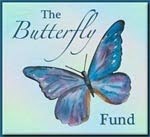The answer is sadly, no.
To the defense of many of them they are simply too far away to help, but their hearts are always with us. While other bonds have broken down and simply are no longer present.
"Irving Dickman and Dr. Sol Gordon (1985, p. 109) share in their book One Miracle at a Time, that “it is not the child's disability that handicaps and disintegrates families; it is the way they react to it and to each other.” I've learned you can't force anyone to understand - even family. I'm sure there are various reasons for family breakdowns after a disability occurs within the family unit. Reasons that could vary from embarrassment, overwhelming emotions of sadness or grief, the loss of dreams for a grandson or granddaughter, the stress of having to care for this child differently. This phenomenon happens to many families. In fact most families I've spoken with have at least one or more family member that has distanced themselves purposefully from the situation. Whether they completely withdraw, or intentionally cause a rift that spreads like wildfire amongst the entire family.
Sometimes there are "cracks" in a relationship that already exist and coupled with the presentation of the stress a disabled family member presents just causes that crack to turn into a complete break.
It's also very hard for some family and even some friends to understand a situation or a disability when it is completely foreign to them. Many would have loved to dismiss Noah's neurological arching as simple baby acid reflux - something temporary - as the idea of something really being neurologically wrong with Noah was beyond comprehension for them. Families also get highly sensitive when it comes to parental advice. Even with normal developing children. Those that have parented before you give you unsolicited advice thinking that your challenged child is like all other babies in the family before them. Let them cry it out - not so great for the neurological baby that gets so distraught that aspiration becomes a minute to minute risk. Swaddle them and they'll quit crying - not the case for a baby that finds every position uncomfortable. Taking the time to learn how to care for a child with special needs is also difficult for some family members. Some families view it as a case of "bad parenting" rather than an "disability."
"However, if your family unit separates, you can each still go on to build full and productive lives” (Albrecht, 1995, p. 24) Raising a child who has a physical disability . This is the key to becoming a special family; providing the children with a stable family system." And this is where the tremendous strong bond that Chris and I have comes in. We cannot spend a large amount of time grieving over the loss of relationships that have broken down. We simply have no choice but to embrace the struggle and move forward. Our positive energy has to be devoted to Noah. The relationship that we have between us is important to demonstrate to Noah that he is indeed loved beyond all other factors is one of the many important keys to his continued recovery. He would never thrive in a distraught and unhappy home.
Having family or even friends close that door of support doesn't have to be a catastrophe. Is it sad? Most certainly so. But Chris and I have learned, as with many other families, that support comes in all different shapes and forms. Noah is loved by so many, proof in his caringbridge guestbook messages. And although Chris and I face the occasional off-the-wall negative comment, the majority of support is overwhelming and that is what counts. And most days we feel like there are those who have adopted us as their own. For those that feel forsaken, know that you're never alone. Even if there is just one person out there that cares, that's all you need. Most importantly cling to what matters, discard the rest.
When thinking about family discussions this quote gave me a bit of a chuckle:
"If you cannot get rid of the family skeleton, you may as well make it dance."
Gerorge Bernard Shaw
Love,





















.jpg)
